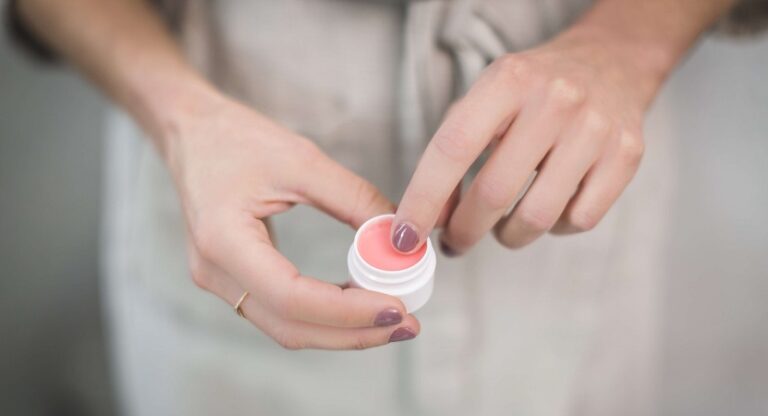Inflammaging: a new immune–metabolic viewpoint for age-related diseases, or in other words, any anti-aging advocate’s worst nightmare. Don’t panic, we’ve got the latest on this rapidly advancing science, and we’re happy to share.
In this article we discuss the following:
What is Inflammaging?
No, this is not a typo. Inflammaging is a word soon to be added to the Oxford Dictionary (we predict), as more and more skincare professionals start investigating this newfound phenomenon. So what is it, exactly?

To better understand the inflammaging meaning, we spoke with a myriad of industry professionals who were able to give us a glimpse into what this condition entails and what exactly we need to know about it.
Danielle Redcloud is a researcher and writing expert at NWPH, focusing on genetics and biology. In her words, “Inflammaging is the long-term result of the chronic physiological stimulation of the innate immune system, which can become damaging during aging, a period of life largely unpredicted by evolution.”
For a more in-depth description, Cindy Corpis, CEO of Search People Free, came to the table: “Inflammaging is the prolonged result of the chronic psychological stimulation of the inherent immune system. It can become damaging during aging as a life period is largely unanticipated by evolution.”
So, inflammaging is mainly an inflammation that leads to rapid aging of the skin. “As per the epidemiological studies, inflammaging is a higher risk factor for cancer, CVD, dementia, chronic kidney disease, and depression, along with global signs of impoverished health conditions, for example, mobility disability, multimorbidity, and disability in daily living, frailty, premature death, and sarcopenia. The gut microbiota possesses a major role in inflammaging and meta inflammation as it can crosstalk with other systems,” adds Cindy.
All of this is good and well, but it does beg the question: is inflammaging bad? To answer this we reverted back to the insight provided by Danielle Redcloud, and according to her, yes, it is bad. “Epidemiological studies have found that inflammaging is a risk factor for CVD, cancer, chronic kidney disease, dementia, and depression as well for global indicators of poor health status, such as multimorbidity, mobility disability and disability in activities of daily living, sarcopenia, frailty, and even premature death,” said Danielle.
Yikes.
What Causes Inflammaging?
But what does all of this actually mean? We turned to Dr. Ebru Karpuzoglu, skincare and cosmetic chemistry expert, to further elaborate and she shared how the inflammaging theory can be better understood as a societal dilemma. “As a society, we are over stressed and now starting to recognize the toll it’s taking on our skin. The skin’s primary job is to protect the body against bacteria, viruses, stress, UV damage and pollutants. Skin’s complex immune system defends us against these aggressors. It can only handle so much being constantly bombarded with inflammatory aggressors, while working to protect its weakened skin barrier.”, says Dr. Karpuzoglu.
“Being in a constant state of low grade inflammation called inflammaging (inflammation + aging) forces skin’s immune cells to be continuously stimulated by molecular garbage making them work harder leading to burnout, free radical damage, poorly functioning cells and accelerating the aging process,” she adds.
If you deduce anything from this, it should be that inflammaging is a complex phenomenon that isn’t as straightforward as ‘the sun is bad for your skin’, for example. It’s a much more nuanced and subtle form of deterioration that takes place at microscopic level first.
Now that we’ve had the basic and the complex breakdowns, we decided to talk to someone who could offer some balanced middle ground in an explanation. Dr. Pana Ninan came to the rescue: “Inflammaging is a negative term referring to aging that is occurring to our bodies, inside and out, due to long-term inflammation.”
Simple enough, right? She adds that our bodies are aging prematurely due to inflammation caused largely from our diets. “The consumption of processed oils, such as vegetable, corn, soy, and safflower oil has changed the health trajectory of our country. Over time if our bodies experience constant inflammation, we are more likely to be diagnosed with chronic disease states such as type 2 diabetes, heart disease, and autoimmune disorders,” says Dr. Ninan.
Essentially, if you’re living in modern society and skincare/longevity is of interest to you, then you’re subconsciously a supporter of anti-inflammaging; those against the decay and chronic state of inflammation that the skin is subject to due to the shift in environmental factors worldwide.
In one inflammaging review, Melanie Keller (ND) offers some fantastic insight into the accelerants for the condition. “Processed sugar, carbohydrates and excess alcohol are known to accelerate inflammation, which in excess is not a good thing because chronic inflammation is not only a major cause of premature aging (or inflammaging), it can also lead to a host of damaging health conditions including but not limited to diabetes, cancer, Alzheimer’s, and heart disease.”

Inflammaging Symptoms
According to Dr. Karpuzoglu, signs of inflammaging would be visible as irritated, inflammated, itchy, sensitive, dull, dehydrated feeling skin. “With inflammaging, skin’s microbiome balance can be compromised leading to dryness and further irritation. Today inflammaging is more than a trend. It is an unavoidable scientific phenomenon that is the real deal due to the stress we are all constantly under. What’s worse, inflammaging is not visible, yet over time it can degrade collagen and elastin content leading to a dehydrated, wrinkled face while robbing you from that healthy glow,” she says.
Some symptoms that one can expect as a result of inflammaging can include (but is in no way limited to), fatigue, body aches, unexplained weight gain/loss, diarrhea and constipation, and even persistent infections within the body.
Abe Breuer, from VIP To Go, further explained the phenomenon stating how (as we now know) inflammaging refers to the outcome of persistent chronic physiological stimulation of the inherent immune system. “Symptom wise, this can lead to deteriorating effects with passing time. Inflammaging is expected to be a cautionary factor for various other problems that include CVD, cancer, chronic kidney disease, dementia, and depression.”
Inflammaging Treatment
All of the experts we spoke with in researching this condition will agree that, unfortunately, inflammaging is an inevitable thing for any being who calls Planet Earth home. That said, there are certain treatments and prevention steps one can take to not have to suffer so badly from said chronic inflammation. Diet seems to be a major factor, and we’ll dive deeper into this shortly. To start, some wise words from Melanie Keller (ND) who we spoke with earlier.
Keller added that changing your diet to one that is mainly focused on green leafy vegetables, oily fish, fruit, nuts, and olive oil has been shown in research to prevent diet-related age issues. “Brain aging is described by the interplay of our sleep patterns and changes in the brain’s garbage cleaning abilities. Insufficient sleep leads to an increase of the brain’s garbage concentration and may explain an underlying mechanism behind healthy or unhealthy brain aging,” she explains.
Dan LeMoine is a certified holistic nutrition counselor and author of Fear No Food. He shares the inevitability of inflammaging skin, to a certain degree, admitting that we do have some control over the amount of inflammation our bodies are exposed to. “Various lifestyle factors like proper sleep, staying physically active, focusing on de-stressing through prayer or meditation, and proper nutrition and fasting can all contribute to decreasing oxidative stress and inflammation,” says Dan.
He adds that one very simple-yet-powerful way to decrease inflammation is through maintaining a healthy weight with a whole-food diet. “The fat cells in your belly actually encourage inflammation by releasing certain chemicals that are irritants to your body’s tissues. This inflammation is a contributor to heart disease, stroke, and arthritis…” and many other maladies and chronic illnesses associated with age,” he reads as an excerpt from Fear No Food.
For the purpose of inflammaging skincare, the top ten anti-inflammatory foods to eat often are: berries, fish, avocado, green tea, peppers, mushrooms, grapes, dark chocolate or cacao, tomatoes, and cherries.
Adding to this, Dr. Ninan, who we heard from earlier in this article, also offered some ways of reversing said inflammation. “Using a functional medicine approach, you can work to reverse inflammation in the body, which helps you to not only live longer but to also thrive during those years. Some ways to reverse or prevent inflammaging within our own bodies on top of nutritional changes include time-restricted eating, high-intensity interval training (HIIT), and cold therapy or cold water immersion.”
And there you have it, folks. We’re not sure a more multifaceted, multi-perspective breakdown on inflammaging exists. Thanks to our industry professionals, we’re confident that you now not only understand this phenomenon from a medical professional’s point of view, but also from the point of view of any average human being who simply wants to make better choices for their body and skin.
If we could summarize what we learned on this journey, it would be this: eat smart, drink pure water, never miss a workout, take cold showers, meditate daily, and sleep like a baby — you and your skin deserve it.
Did You Enjoy This Article?
If you enjoyed this article, you might also like our articles discussing skincare such as Best Vitamins and Supplements for Skin and Frownies and Anti-Wrinkle Tape.



